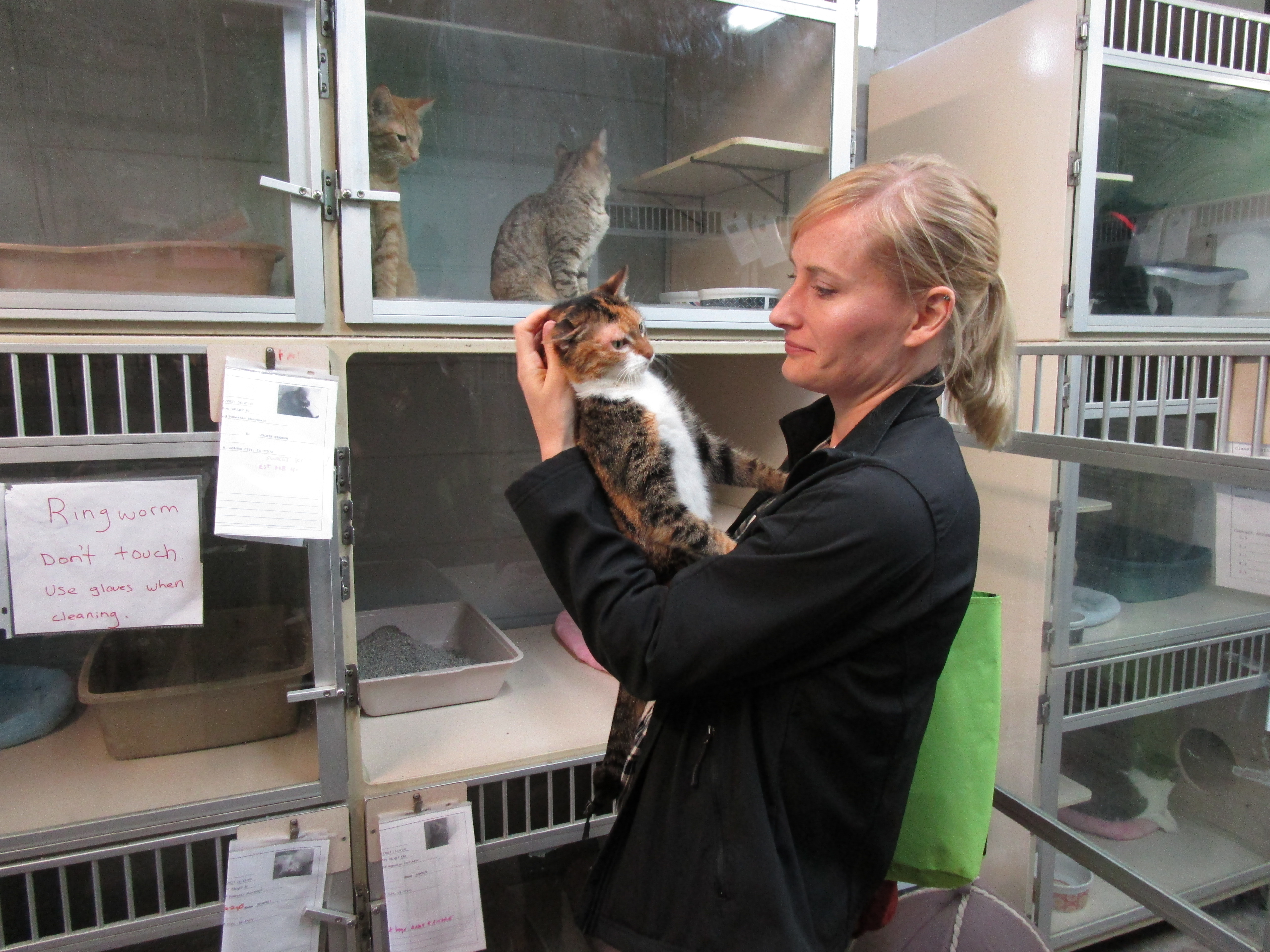Imagine there is a powerful storm bearing down on your town. Officials are calling for everyone to evacuate. Where would you go – and if you couldn’t bring your pet, would you go anyway?
These are the questions researchers with the Institute for Disaster Management at the University of Georgia and Illinois State University are working to understand.
Sarah E. DeYoung, an assistant professor of health policy and management at UGA, and Ashley Farmer, an assistant professor in criminal justice studies from Illinois State, are leading the project to study how pet ownership impacts the decisions we make in the face of an emergency.
“From a public health perspective, the focus of disaster research is safety and preventing loss of life,” she said. “We look at what facilitates and at what hinders evacuation decision-making.”
DeYoung first recognized the need to focus on companion animals when she was gathering survey responses and anecdotes from Carolina coastal residents who chose not to evacuate ahead of Hurricane Matthew in 2016. Repeatedly, respondents expressed that they didn’t want to leave their pets behind.
In the wake of Hurricanes Harvey and Irma, DeYoung won a National Science Foundation RAPID grant to dig deeper into issues related to pets and evacuation decision making during a range of natural disasters.
In September, the researchers deployed to cities in Texas and Florida that had been heavily impacted by the storms. At each location, they conducted interviews with pets-focused personnel, such as shelter coordinators, animal non-profits and veterinarians, and pet-owning evacuees.
“Our research is asking, among those who have the ability and resources to evacuate, are pet owners more likely to leave sooner than non-pet owners because pet owner is responsible for life of animal?” said DeYoung.
The resources available to us — money, transportation, family living nearby — play a key role in how we make decisions, says DeYoung. When people have limited access to resources, they become more vulnerable to the type of drastic change a natural disaster presents.
“Where you’re situated in a social system can make you more or less likely to have access to certain resources,” said DeYoung. “Having a pet can make you very resilient in some ways but may hinder your evacuation in others.”
People who don’t have a car, for example, may not be able to take their animals on a city bus. Evacuees are also often unsure if pets will be accommodated in the hotels or shelters taking them in evacuees.
Much of the decision to evacuate with or without an animal depends on how the animal is viewed, says DeYoung. If a pet is like a member of the family, people are more likely to evacuate with that pet.
Yet, once owners choose to evacuate with a pet, the question of its care becomes more complicated. Often, shelters are not prepared to care for animals, even if they accept them, and having enough supplies on hand is a common issue.
“Shelters in Texas had too much dog food after the storm,” said DeYoung,” but not enough pee pads, leashes and kennels.”
Emergency planning for natural disasters is left up to individual counties, and DeYoung hopes her research will highlight the need to account for pet evacuations in their emergency plans.
“One of our first priorities is identifying small, low cost things that would make evacuating with pets easier,” she said.
They are looking to the policies that worked and examples of when policies failed to identify best practices for future emergency plans. The findings may also offer lessons for pet owners and for groups working with the people and their pets.
For example, cats are not as independent as most people think. “Their owners assume that they could manage on their own for a few days. In fact, cats are just as vulnerable as other pets to natural disasters,” said DeYoung.
There are numerous complicated factors that play into a creating a successful emergency evacuation plan both at the community level and for individual families, but one thing is clear to DeYoung — people really care about their pets and accommodating animals should be a priority.
“Some people said, I don’t care that I lost my house,” she said. “I just want my dog or my cat back.”
You can follow DeYoung’s Pets & Evacuation Research project on Facebook.
– Lauren Baggett
Posted on November 14, 2018.







